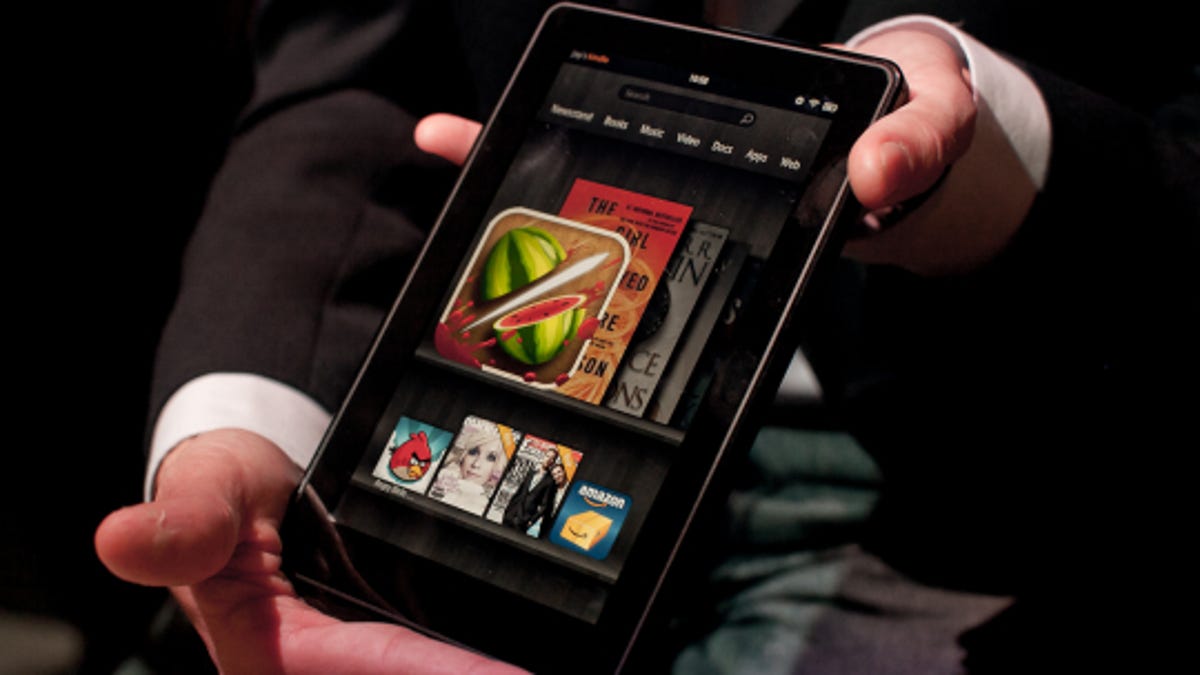Content will be key to Kindle Fire's success
Average consumers could care less about bigger, faster competitors once they see what the Amazon tablet does for them.

After more than a year of rumors, and six weeks after its
'What can it do?'
Here's a story for you. Of all the times I've demonstrated Android tablets to strangers and acquaintances, I've never had someone ask about the hardware. Not once.
Instead, I get questions about e-mail, Facebook, Angry Birds, and using the Internet browser. Amazon, like Apple, realizes that it doesn't matter what the clock speed of a CPU is just as long as it's enough to provide a good user experience. So who cares about how much RAM a tablet has under the hood?
No one, actually, because there are more-important questions. Can I log in to Facebook and Twitter? Can I play Cut the Rope? Can I get my e-mail? That's what matters to the average person.
Content (and money) matters
Amazon issued two press releases last week specifically touting the content that awaits Kindle Fire users. With access to more than 18 million songs, movies, TV shows, books, magazines, games, and apps, there will be a lot to entertain you.
Lest you believe the device is tied into Amazon-only products and services, consider that it also has support for Netflix and Hulu Plus. What's more, with a growing library of Android applications and games, it's a snowball effect waiting to happen. Even at this early stage, Android developers would be foolish not to entertain the notion of releasing their application(s) on the Kindle Fire. More content will breed more adoption, in turn breeding more development.
As wonderful as the Transformer Prime and other quad-core devices sound, it's going to be very difficult to get consumers to part with an additional $200 or more. I'm reminded of my days spent selling computers back in the late '90s and early '00s. When dealing with customers, I would walk past considerably more-powerful desktops on the way to the back of the store for the model "advertised on TV for $999."
More often than not I would hear "this is all I need" and have a hard time talking people into pricier models. And try as I might, it was hard for average buyers to justify spending more money.
The Kindle Fire is more than enough "tablet" to satisfy the needs of the masses and half the price of it's hardware-heavy counterparts. Whereas you and I might know the tablet is not "Amazon's answer to the iPad," the guy down the street may think otherwise. In fact, he probably wouldn't care if you point out the differences.
Usability
Although I've yet to play with a Kindle Fire, I suspect that the user interface is simple to master. I love Android Honeycomb as much as the next guy, but I know it won't be as intuitive to new users.
Ice Cream Sandwich might prove to be a different story, but I imagine that devices like the Kindle Fire and
I'll be very interested in seeing how "traditional" Android tablets are marketed in the new year, especially in the wake of the recent Adobe announcement. Will we see bigger players releasing less expensive alternatives or will 2012 continue the trend of high-priced tablets tied to carriers?

